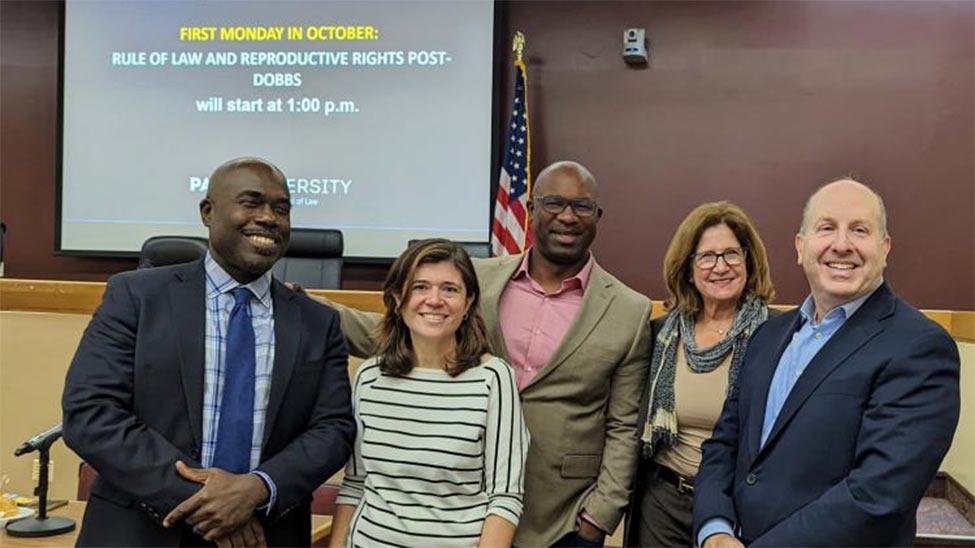
Mystic Seaport Museum's Riverfest begins on Oct. 8: Here's what to know
Visitors will also be able to watch a screening of “From Tide to Table,” which is a documentary by Pace University that focuses on the oyster farming industry on the east coast, according to IMBD. Parts of the film were filmed around the shores of Connecticut's Long Island Sound.
Expert weighs in on current crime situation in New York City
Dr. Darrin Porcher is a law enforcement expert, criminal justice professor at Pace University and a retired NYPD lieutenant. He joined PIX11 Morning News on Tuesday to talk about the current crime situation in New York City.
Study reveals digital divide in Westchester County
The digital divide in Westchester is very common, according to a recent survey conducted by Westchester Children's Association and Pace University.
Pace University MPA student conducts survey into the Digital Divide in Westchester County
Sydney Moraitis, a Pace University MPA candidate, conducts survey into the Digital Divide in Westchester County.
Elisabeth Haub School of Law at Pace University Holds Panel on “First Monday” to Discuss Rule of Law and Reproductive Rights Post-Dobbs
The Elisabeth Haub School of Law at Pace University community came together on Monday, October 3 to mark the beginning of the new Supreme Court term (known as “First Monday”). Haub Law professor Leslie Tenzer moderated a distinguished panel which included Haub Law Professors Bridget Crawford and Emily Gold Waldman as well as attorneys Mashayla Hays, Legal Counsel from The Lawyering Project and Kulsoon Ijaz, Staff Attorney for the Center for Reproductive Rights. The panel engaged in a thoughtful discussion on the Supreme Court’s recent decision in Dobbs v. Jackson Women’s Health Organization, which overturned Roe v. Wade. Additionally, they analyzed the decision itself, the future landscape of legal protections for reproductive rights, and the larger implications for the rule of law. Pace University President Marvin Krislov delivered welcome remarks, along with Congressman Jamaal Bowman (NY-16), who urged Haub Law students to be “courageous, relentless and to lead and learn with love all the while, understanding the urgency of the moment we live in.”
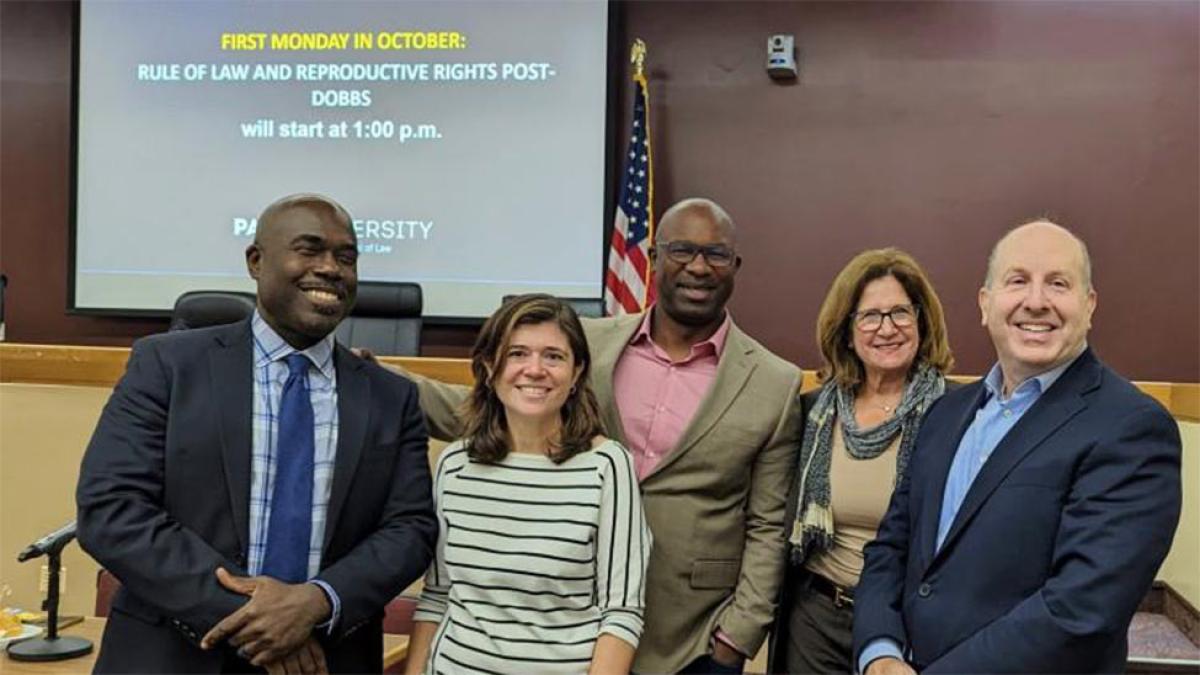

The Elisabeth Haub School of Law at Pace University community came together on Monday, October 3 to mark the beginning of the new Supreme Court term (known as “First Monday”). Haub Law professor Leslie Tenzer moderated a distinguished panel which included Haub Law Professors Bridget Crawford and Emily Gold Waldman as well as attorneys Mashayla Hays, Legal Counsel from The Lawyering Project and Kulsoon Ijaz, Staff Attorney for the Center for Reproductive Rights. The panel engaged in a thoughtful discussion on the Supreme Court’s recent decision in Dobbs v. Jackson Women’s Health Organization, which overturned Roe v. Wade. Additionally, they analyzed the decision itself, the future landscape of legal protections for reproductive rights, and the larger implications for the rule of law. Pace University President Marvin Krislov delivered welcome remarks, along with Congressman Jamaal Bowman (NY-16), who urged Haub Law students to be “courageous, relentless and to lead and learn with love all the while, understanding the urgency of the moment we live in.”
With so many important decisions in the balance, this upcoming Supreme Court term holds great significance for our society, for the legal community, and for the rule of law,” said Dean Horace Anderson. “As a law school, we seek to educate our students on these pivotal rulings, to inspire them, and to provide them with the tools that will enable them to become leaders in the future.”
Homecoming 2022
Beginning Thursday, October 13, through Saturday, October 15, Pace's Pleasantville Campus will be celebrating its annual Homecoming celebration, honoring alumni from both campuses.
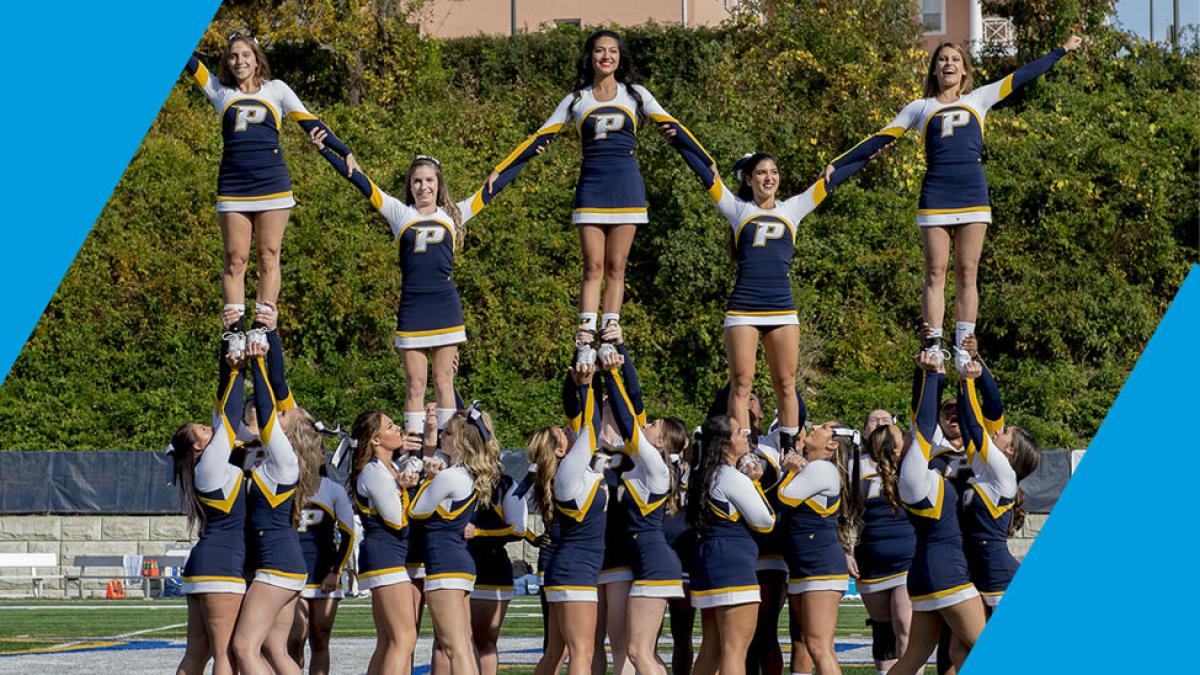
October 2022: A Message from President Krislov
President Krislov talks being back on campus, more forward momentum for the University's strategic plan, ongoing improvements to our NYC Campus, plans for Emotional Wellbeing Month, and so much more.
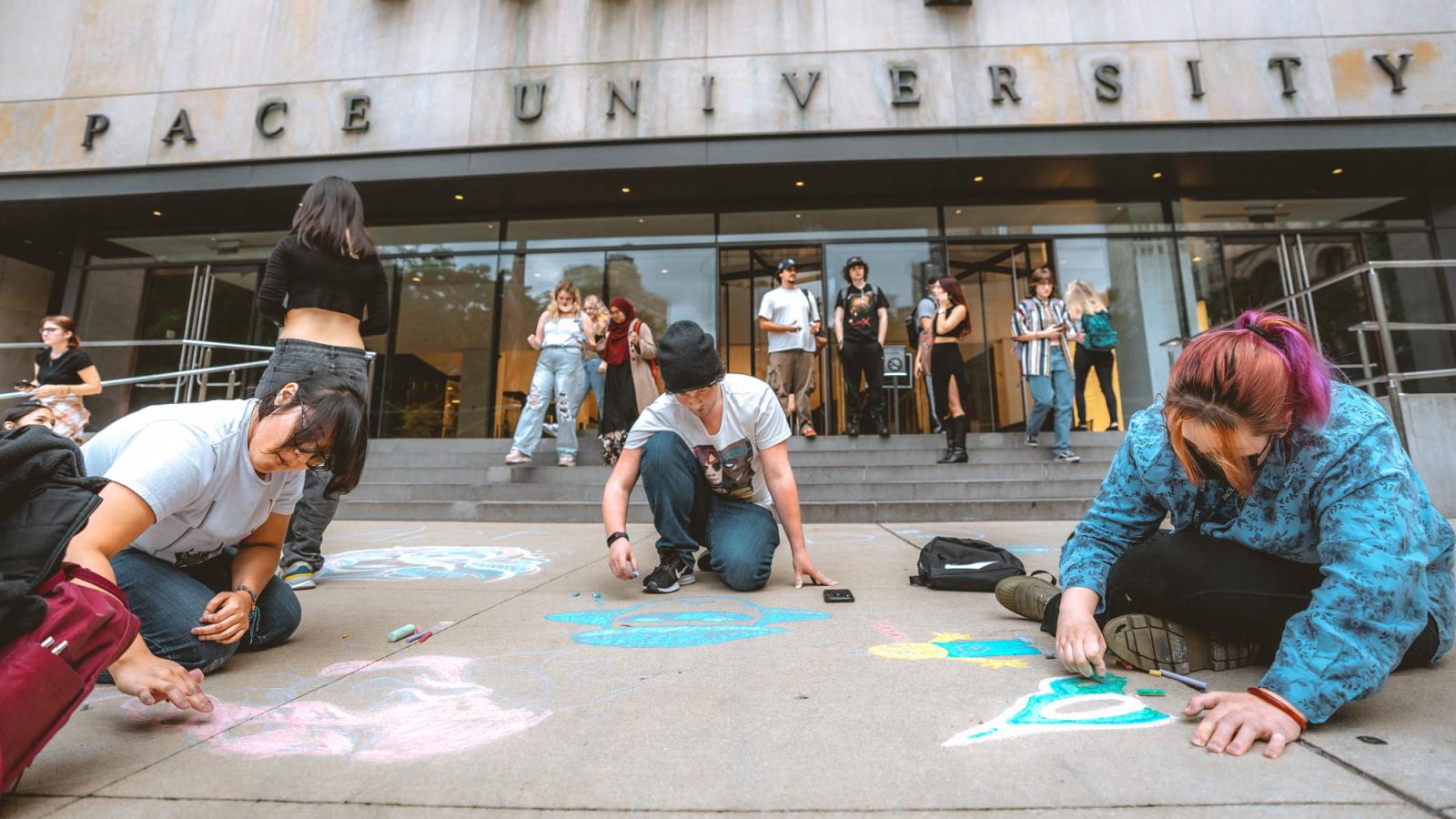
It’s energizing to be back on campuses for an in-person, New Normal fall semester. I’m teaching two classes this semester, I’m cheering on Setters athletes in Pleasantville and applauding PPA performances in New York City, and I’m enjoying the serendipity of bumping into students, friends, and colleagues in elevators and on walkways. I hope the new semester is off to as inspiring a start for all of you as it has been for me.
As we embark on the new year, my main focus is on continuing to build a strong Pace University by guiding the implementation of our strategic plan, Pace Forward. As always, two cornerstones of our work are investing in graduate, interdisciplinary, and combined degree programs to meet market demand and continuing our progress on DEI initiatives and our work to become an anti-racist institution.
Beyond those foundational efforts, we have four priorities for this academic year. The first is building out the Pace Path across all undergraduate programs and ensuring each undergraduate has the opportunity to complete two experiential activities before graduation. The second is supporting and investing in the people who work at Pace by improving our culture of collaboration addressing priorities identified in the Great Colleges results. The third is improving administrative processes to make it easier to get our work done, addressing both student-facing and employee-facing processes. And the fourth is completing construction on 15 Beekman Street and developing plans for One Pace Plaza East, as we continue to invest in our physical environment to meet our academic needs across all three campuses.
Staff and faculty, I encourage you to join next week’s Community Conversation, where we’ll begin discussion of our collaborative work on these priorities.
I also want to note that October is national Emotional Wellness Month. At Pace, we have renewed our commitment to advancing mental health and wellbeing among our students, faculty, and staff, especially in wake of the pandemic. We offer programming and support for both our student and employee communities, and I encourage you to take advantage of them.
Finally, like many of you I have watched the scenes of devastation from Puerto Rico, Florida, and elsewhere in the southeast in recent weeks. For those of you from the affected areas, or with friends or family there, we send all our best wishes for a speedy recovery.
Have a good autumn. Have a good semester. And, especially in Emotional Wellbeing Month, do what you need to do to take care of yourselves.
More from Pace
The Fall 2022 semester kicks off with drama, comedy, and a bit of song and dance from Pace's School of Performing Arts. See what’s coming to the Pace mainstage this season.
Beginning Thursday, October 13, through Saturday, October 15, Pace's Pleasantville Campus will be celebrating its annual Homecoming celebration, honoring alumni from both campuses.
Pace University on Monday unveiled its first dedicated gaming arena in celebration of the Athletic Department’s newest and 15th varsity sport – Esports. The announcement comes as Pace University’s Esports program enters its second official season after a successful inaugural year in spring 2022. There are more than 500 members across both campuses that are a part of Pace’s gaming community, including players on its Varsity, Academy, Club and Intramural teams. The arena was made possible with support from Burt and Hedda Hurvich.
Pace University Unveils New Esports Arena
Pace University on Monday unveiled its first dedicated gaming arena in celebration of the Athletic Department’s newest and 15th varsity sport – Esports. The announcement comes as Pace University’s Esports program enters its second official season after a successful inaugural year in spring 2022. There are more than 500 members across both campuses that are a part of Pace’s gaming community, including players on its Varsity, Academy, Club and Intramural teams. The arena was made possible with support from Burt and Hedda Hurvich.
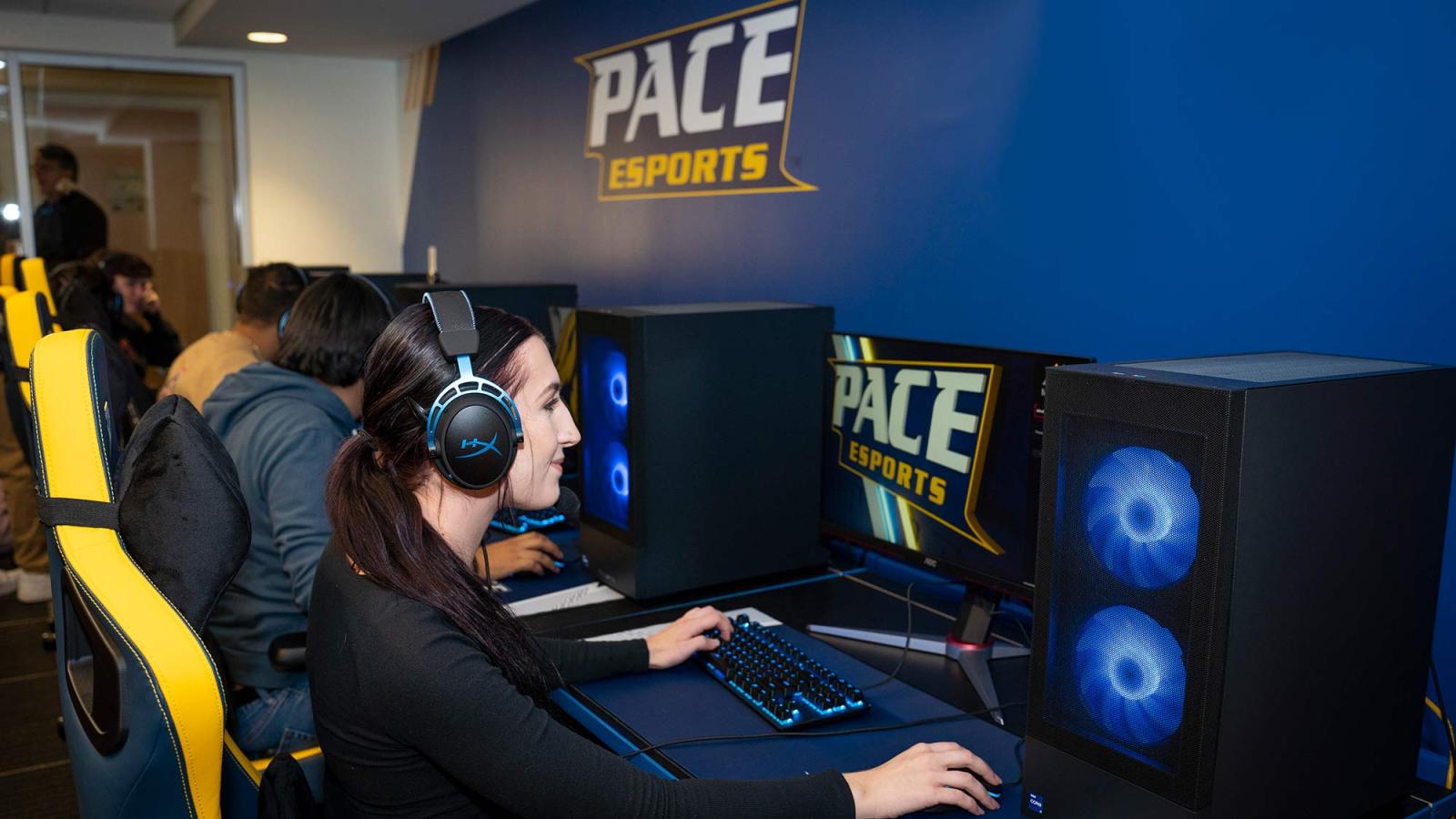
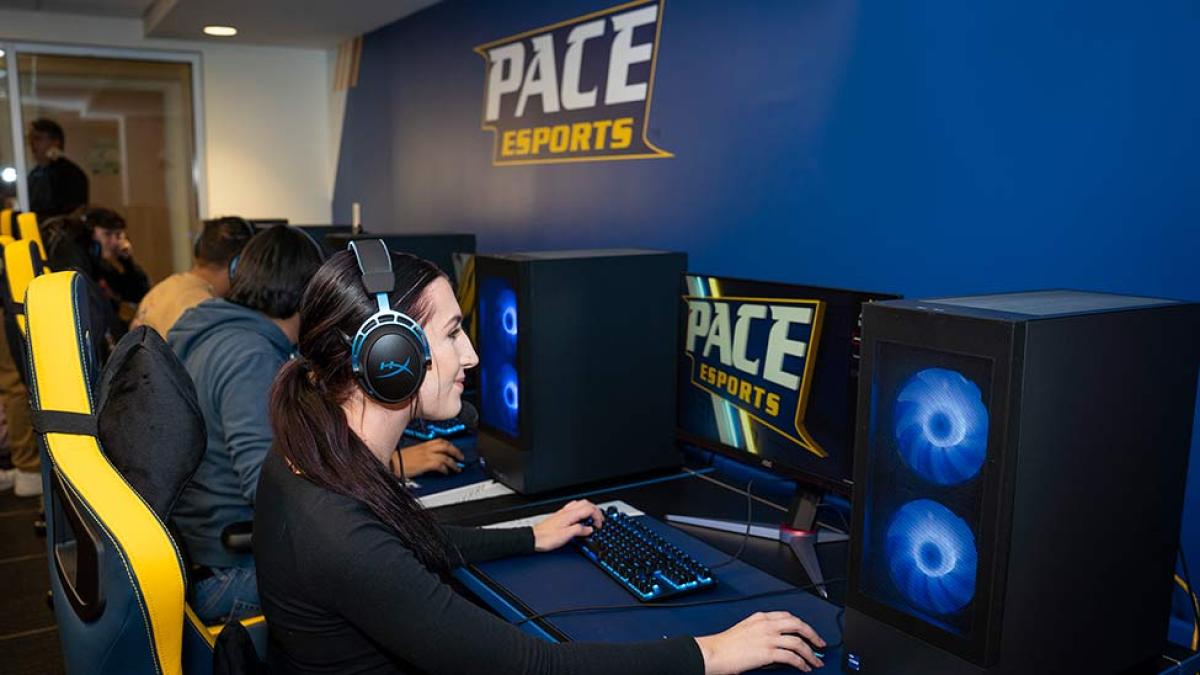
Pace University Celebrates First Dedicated eSports Space
Pace University on Monday unveiled its first dedicated gaming arena in celebration of the Athletic Department’s newest and 15th varsity sport – Esports.
The announcement comes as Pace University’s Esports program enters its second official season after a successful inaugural year in spring 2022. There are more than 500 members across both campuses that are a part of Pace’s gaming community, including players on its Varsity, Academy, Club and Intramural teams. The arena was made possible with support from Burt and Hedda Hurvich.
“I am extremely excited to welcome our gamers to this amazing new Esports Center,” said Pace Director of Athletics Mark Brown. “The incredible generosity of the Hurvich family creates a space that allows all gamers to be a part of a formal team in a common space. This space will ensure all gamers can participate and play a significant role in our robust gaming community.”
The goal is for competitive and casual gamers is to be able to connect with like-minded peers in online and offline settings. In its relatively short existence, Pace has enjoyed success. For example, Pace Esports’ Smash Gold 2 team won the ECAC Open Division Grand Finals earlier this year, finishing in first place out of 76 teams in their division. Additionally, Pace Esports' All-Women's VALORANT Blue Team ("Pace Blue") recently placed third in the first-ever VENOM LAN event in Columbus, Ohio.
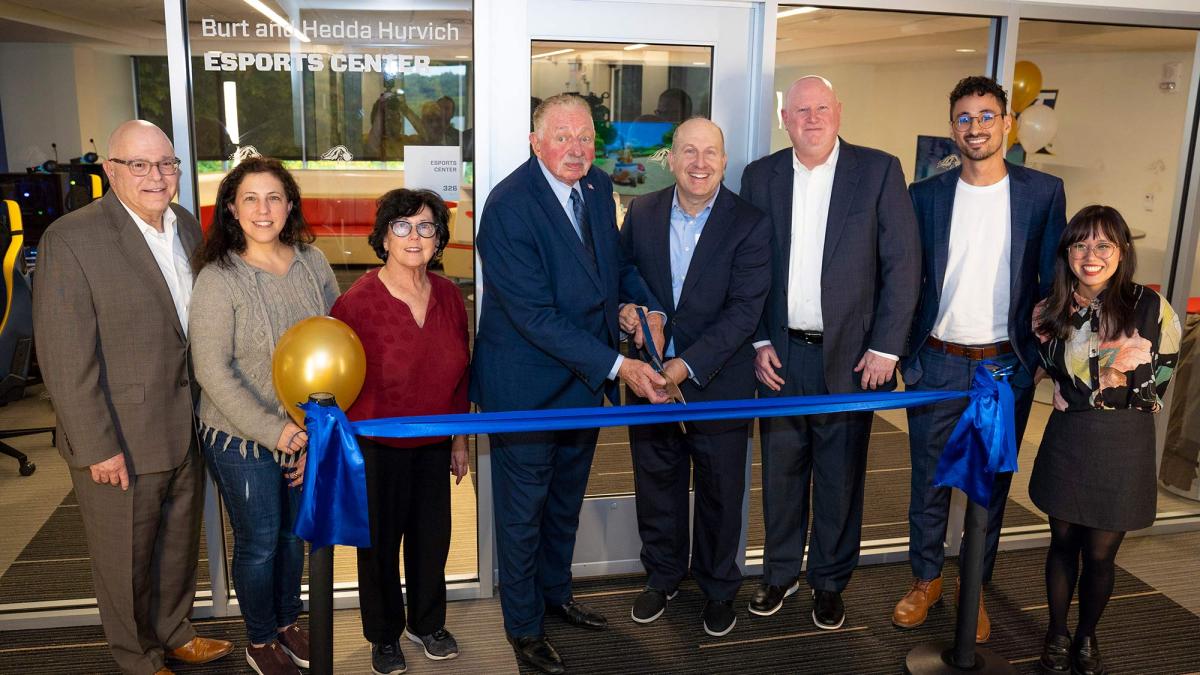
“Last year we launched Pace’s Esports program to meet a rapidly growing demand and give our students the chance to build important skills like teamwork, strategy, and discipline,” said Pace President Marvin Krislov. “I’m very happy that thanks to the generosity of Burt and Hedda Hurvich, we’re now able to open this campus Esports Center to serve our students and this program.”
Joining the president, athletics director, the Hurvich family, and staff were scores of gamers, student-athletes, and members of the Pace Esports team.
“It’s a great space,” said Director of Esports Jesse Bodony. “We are hopeful that it takes things forward for Pace and the institution. It’s a step forward for the students and all the gamers who historically haven’t gotten the chance to be a part of something. So, for our competitive and causal gamers, this is something that moves the needle in a big way.”
City Council Redistricting Drama Underscores Dropped Commission Ethics Policy
Dr. Darrin K. Porcher is a former NYPD officer and currently an adjunct professor at Pace University School of Criminal Justice and Monroe College.
Best Credit Cards of October 2022
Professor Irani DeAraujo was featured in this WalletHub piece about credit cards.
